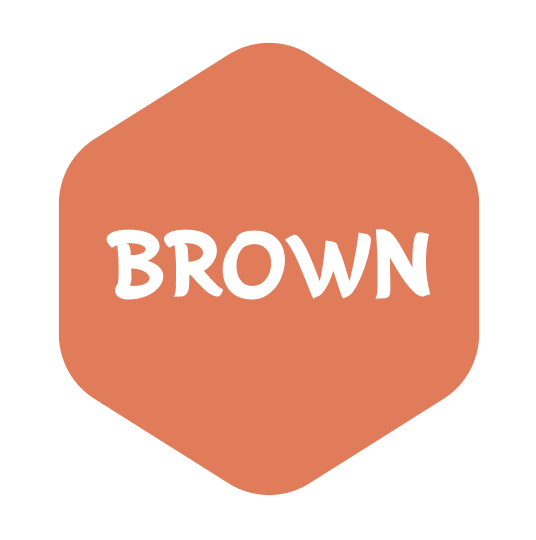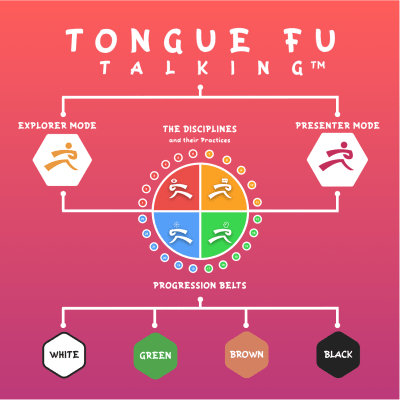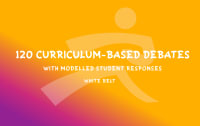The structured system for teaching oracy deliberately and progressively
A complete, whole-school approach that gives every teacher clear teachable practices, cumulative progression, and ready-to-use resources so oracy becomes consistent, systematic and embedded across every subject.
Already have an Account?
Access your account using a registered email address.
New to Tongue Fu Talking?
Begin by searching for your school from our database.

What is Oracy?
According to the Curriculum and Assessment Review (2025), oracy is the ability to speak and listen effectively for learning, communication, and participation. It must be taught deliberately and progressively—helping pupils think aloud, reason together, and express ideas with clarity and confidence across every subject.
Tongue Fu Talking® provides a complete Structured Oracy System that turns this expectation into a classroom reality. It provides teachers with explicit practices, mapped progression, and fully supported resources, so systematic oracy teaching becomes both practical and achievable in every subject.
To Learn More...
Here's a selection of our Oracy Blogs
Read: Complete Guide to Teaching Oracy from EYFS to KS3
Read: Why Oracy Matters
Read: Oracy is not a Subject, but Every Subject Requires it
Read: Curriculum-Based Debates: A Powerful Classroom Talk Strategy
Read: Top 10 Classroom Talk Strategies to Develop Oracy Skills with Tongue Fu Talking®
Read: Why Opportunities For Talk Are Insufficient To Develop Oracy Skills
Read: Inclusive Oracy: How Tongue Fu Talking® Scaffolds Every Student
Read: Practical Oracy Activities for Every Key Stage: From Sentence Stems to Structured Debates
Read: Oracy for More Able Pupils: Why Structured Talk Still Matters
What is Tongue Fu Talking®?
Developed by Chris Quigley Education, Tongue Fu Talking® is a fully resourced and genuinely structured system for whole-school oracy. It provides explicit teachable practices and a mapped progression from EYFS to KS3, so speaking and listening can be taught with the same clarity, sequence, and curriculum focus as reading, writing, and mathematics.
The name comes from kung fu—not fighting, but a disciplined pursuit of mastery through practice. In the same way martial artists refine their control and focus, Tongue Fu Talking® helps pupils master the disciplined art of spoken communication.
Part of Chris Quigley Education


What's Included?
Your Tongue Fu Talking® subscription provides a complete, ready to use oracy system for every teacher, subject and age group. There are no blank pages and no guesswork. You receive a clear sequence, explicit practices and fully supported resources so oracy becomes teachable from day one.
Leader Resources:
Built for busy leaders who want strategy made simple.
- A Year of Oracy: Month-by-month implementation plan
- Tongue Fu Talking® Oracy Framework with detailed guidance for each aspect
- Oracy Audit Materials
- Whole School Oracy Policy
- Parent Information Sheet
- Oracy CPD Videos: Training for all your staff, available throughout your subscription
Teacher Resources:
Everything teachers need to teach talk deliberately, with minimal prep.
- Games to Introduce the Oracy Disciplines
- Debating Guidebook - develop oracy through curriculum-based debates
- 120 curriculum-based debates for each belt (480 Debates with worked examples in total!)
- Metacognition Guidebook - develop oracy through metacognitive strategies
- Sentence Stems for Metacognitive Strategies - Predictions, Questioning, Visualising & Reflecting
- Presenting Guidebook - develop confident speakers with these oracy guides
- Printable Presenter wheels for the four belts - pupil-friendly oracy skills wheels
- 282 Because - So - But Discussions for all aspects of KS1-KS3 Science
- 20 Classroom Talk Strategies Guidebook with examples from EYFS to KS3
- Assessment Materials - help students self-assess their oracy skills
ALWAYS GROWING: Your subscription keeps expanding—new resources added automatically, no extra cost.
Coming Soon:
- Gestures Cards
- Pacing Guides
- Rhetorical Devices
- Facial Expression Guides
- Code Shifting Guides (for Register and Tone)
- Discussions when pupils have limited prior knowledge: practical strategies
- Vocabulary Spines AND MORE
A Deliberate and Progressive System for Teaching Oracy
Why Schools Need a Structured Oracy System
When classroom talk lacks structure, pupils miss out on one of the most powerful drivers of learning. Purposeful, guided dialogue strengthens reasoning, deepens understanding, and builds confidence—but without a clear framework, only a few voices are heard and much of that potential is lost. Saying “we’ll give pupils opportunities for talk” is like saying “we’ll give them opportunities for maths.” If we are to take oracy seriously, we need more than opportunities: we need structure, deliberate teaching, and practical progression.
Two Modes of Speaking: Explorer and Presenter
Explorer Mode, for thinking together; Presenter Mode, for speaking to an audience

Explorer Mode

Presenter Mode
Four Disciplines to Master
Each discipline focuses on a different element of communication, ensuring pupils speak and listen effectively.

The Stance

The Flow

The Mind

The Bond
Four Grade Belts
Mirroring martial arts grading, the four tier progression system moves from White to Black Belt.

White Belt

Green Belt

Brown Belt

Black Belt
Tongue Fu Talking® At a Glance
- Two modes of talk
Explorer Mode for collaborative reasoning and Presenter Mode for confident, purposeful speaking. Together they form a coherent approach for teaching how students think aloud, explain, justify and present with clarity. - Four disciplines of oracy
The Stance, The Flow, The Mind and The Bond. These cover the physical, linguistic, cognitive and social dimensions of communication and provide the structural backbone for teaching oracy with precision. - Four progression belts
A cumulative sequence from EYFS to KS3 that ensures consistent progression across the school. Each belt increases cognitive demand, linguistic sophistication and independence in talk. - Twenty three teachable practices
Clear, explicit practices within each discipline that show teachers exactly how to teach speaking and listening skills. Every practice includes modelled examples, guidance and ready-to-use resources within the subscription.
23 Teachable Oracy Practices
These 23 practices ensure consistency, shared language and clear teachable steps across EYFS to KS3. Below are the practice titles. Full modelling and progression sit inside the subscription.

The Stance
- Pacing – controlling speed for clarity and impact
- Tone – adjusting emotion and emphasis to match meaning
- Pronunciation – articulating clearly for understanding
- Projection – using appropriate volume and breath control
- Gestures and posture – supporting speech through movement and stance
- Eyes and face – expressing meaning and connection non-verbally

The Flow
- Vocabulary: selecting precise and subject-specific words
- Register: matching language to audience and context
- Grammatical awareness: constructing accurate and effective sentences
- Sentence structure: varying and combining sentences for effect
- Rhetorical flair: using devices such as repetition, contrast, or metaphor to persuade or engage

The Mind
- Content and purpose: knowing what to say and why
- Metacognition: planning, monitoring, and evaluating how talk helps learning
- Reasoning with justification: explaining ideas with evidence or logic
- Summarising: distilling key points to aid clarity and retention
- Structure: organising ideas coherently from opening to conclusion
- Focus: sustaining attention on the task or question

The Bond
- Managing interactions: guiding discussions respectfully and purposefully
- Turn-taking and active listening: building understanding through responsiveness
- Audience awareness: adapting delivery to suit listeners
- Self-assuredness and resilience: speaking with composure and recovering from setbacks
- Liveliness and engagement: bringing energy and enthusiasm to talk
- Collaboration and empathy: working together and valuing diverse contributions
Frequently Asked Questions about Tongue Fu Talking®
Find out what people are asking us.
What is Tongue Fu Talking®?
Tongue Fu Talking® is a Structured Oracy System for schools. It provides a clear, cumulative approach to teaching speaking and listening through two modes of talk, four disciplines and twenty three teachable practices, supported by ready to use classroom and leadership resources.
What are the two modes of talk?
Explorer Mode develops collaborative reasoning, explanation and shared thinking. Presenter Mode develops confident, purposeful speaking for an audience. Together they give teachers a complete system for teaching talk explicitly.
What are the four disciplines of oracy?
The Stance supports the physical aspects of spoken communication, The Flow develops language choices, The Mind strengthens the thinking that shapes talk, and The Bond builds the social and relational skills needed for effective communication.
Which age groups is it designed for?
The system is structured across four progression belts from EYFS to KS3. Each belt increases cognitive demand, linguistic sophistication and independence in talk, giving schools a fully mapped sequence for every key stage.
What resources are included with a subscription?
Schools receive leader resources, teaching resources, assessment materials and a complete CPD library. Everything is designed to support systematic, whole-school implementation so staff can teach oracy with clarity and consistency.
How is pricing structured?
Pricing is based on the number of pupils on roll so small, medium and large schools can adopt the system affordably. Each subscription lasts for twelve months and includes ongoing updates.
Kind Words
from Tongue Fu Talking Users
Our Oracy Inset day, based around Tongue Fu Talking, was well received with much enthusiasm evident. Teachers are finding the resources accessible and easy to incorporate into our provision. Already, it is evident within the classroom that, thanks to our initial steps to implementing the Tongue Fu Talking System (including the really useful 12-month implementation plan), the importance of Oracy is at the forefront of our thinking when planning and teaching.
Gary Staddon, Headteacher, Hilton Spencer Academy, Staffordshire.
I really enjoy using the Tongue Fu website and the oracy and metacognition strategies it offers. It provides a wealth of high-quality resources that are not only useful but also exciting and engaging. Everything is clearly laid out, making it incredibly easy to navigate and find exactly what I need. The way the scheme pulls everything together is fantastic- it gives a clear structure while still allowing flexibility. It’s obvious a lot of thought has gone into making it practical and enjoyable to use. I highly recommend it!
Holly Wain, Deputy Headteacher, Early Reading and English Lead, Flanderwell Primary School, Sheffield.
'Our recent Tongue Fu Talking launch went really well - I followed your suggestions exactly and everyone was fully on board. Staff have already started using it in lessons and weaving it into our school culture. Thank you.'
Richard Colton, Teacher, The Bliss Chyarity School, Northamptonshire
Sample Resources
Subscription Options for Schools
Our subscription bands are designed to give every school access to the full range of Tongue Fu Talking® oracy resources. Pricing is based on your current pupil roll, ensuring affordable access for small, medium, and large schools alike. Each subscription provides 12 months of unlimited use of our structured oracy framework, classroom talk strategies, and teaching materials, renewable annually. Prices are listed exclusive of VAT.















